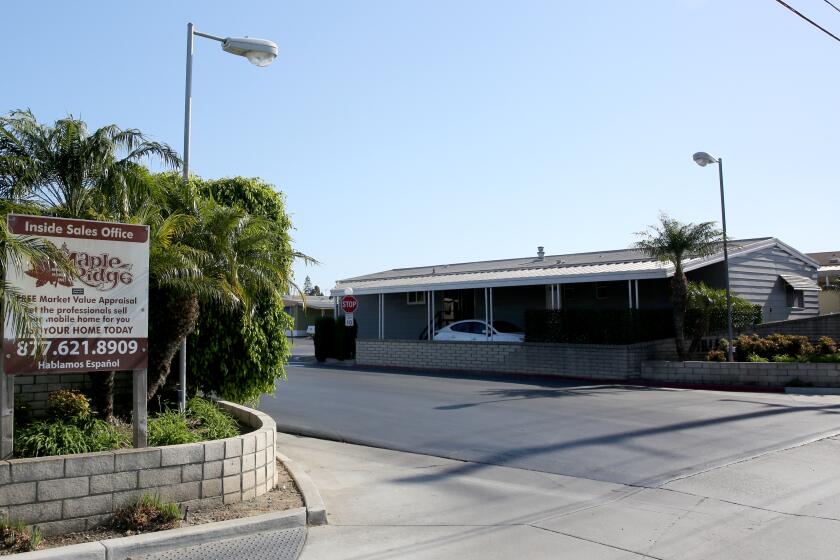City denies club special parade section
- Share via
Jose Paul Corona
If members of the Democratic Club of West Orange County want to
reserve a spot along next week’s highly anticipated Fourth of July Parade
route, they’ll have to camp out over night just like everyone else.
For the past two years the club has had a spot saved for it by
Huntington Beach city officials. But the city won’t be lending a hand
this year.
Two years ago when club members realized that there wasn’t a
designated seating area for the handicapped along the parade route, they
decided to do something about it.
Club members approached the city and asked for help in providing an
area for the handicapped and disabled to watch the parade.
City officials found the club members a spot at Utica and Main
streets, and set up chairs and canopy for them. City staff monitored the
area to make sure no one else tried to lay claim to it.
That won’t be happening this year, city officialssaid.
“I just can’t quite understand it,” said club member Caren Bollinger.
Democratic club members said when they first approached the city, the
response was very positive -- city officials were gracious and helpful,
said club member Sally Alexander.
That is no longer the case, she quickly added.
City officials informed the club that it wouldn’t be able to help them
this year, Alexander said.
According to Ron Hagan, director of community services, the city
simply reevaluated what the club was doing and what it was asking for.
“In the past we had not paid much attention to the American with
Disabilities Act requirements,” Hagan said.
So when the club approached the city it seemed like a good idea, but
after another look, thought differently, he said.
In a June 18 memo sent to the Mayor Debbie Cook and the City Council,
Hagan cited the club’s “expanded use of the area along with requests for
city resources” as the reason for the reevaluation.
Hagan began to investigate whether the arrangement complied with the
American with Disabilities Act and the California Access Compliance Code
Title 24 standards, and realized that it did not. A change in the parade
route also means the festivities will not be going by the previously
agreed upon site.
Rather than segregating handicapped viewers to the corner of Utica and
Main streets, the city has spread handicapped seating throughout the
parade route, Hagan said.
The first two rows on the bleachers, placed throughout the parade
route, have been designated for the handicapped. Anyone wishing to sit in
the bleachers will have to buy a ticket.
Bollinger feels that bleacher seating isn’t enough for some of the
disabled who plan on attending the parade.
“That would be the most difficult place to sit on if you have hip or
spinal problems,” she said.
Other factors also played a role in the city’s decision to not aid the
club.
While the area has been open to anyone and everyone from the
community, many seniors complained that the majority of people sitting
under the club’s canopy were either club members or family members of
club members, Hagan said.
Other clubs and organizations in the city also criticized the city for
helping out one club, while denying help to others. So to “avoid the
perception” that the city favors the club, the city won’t help the club,
Hagan said.
Angry club members feel that the city’s refusal of services is
politically motivated, Bollinger said.
Along with being denied city services, the club has been insulted,
Bollinger said.
During a parade committee meeting that she attended, someone referred
to the area that the group was requesting as a “disabled ghetto,”
Bollinger said.
While Hagan wasn’t at the meeting, he did say that he has heard that
someone made those comments. The statement was taken out of context,
Hagan said.
“It [was] probably a poor choice of analogy,” Hagan said.
The point the person was trying to make was that by putting the
disabled in that one specific area, it was like putting them in a ghetto,
Hagan said.
All the latest on Orange County from Orange County.
Get our free TimesOC newsletter.
You may occasionally receive promotional content from the Daily Pilot.



